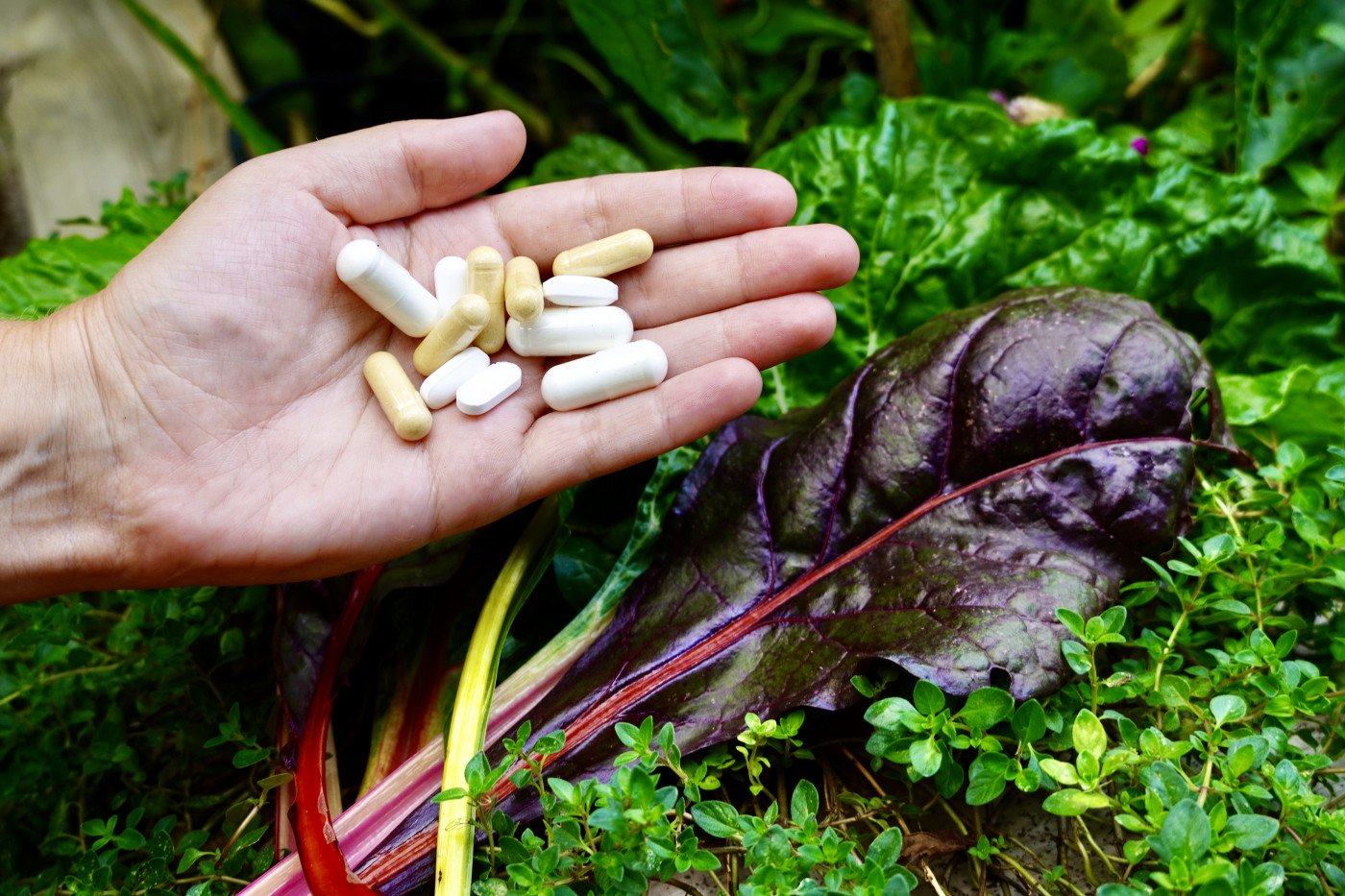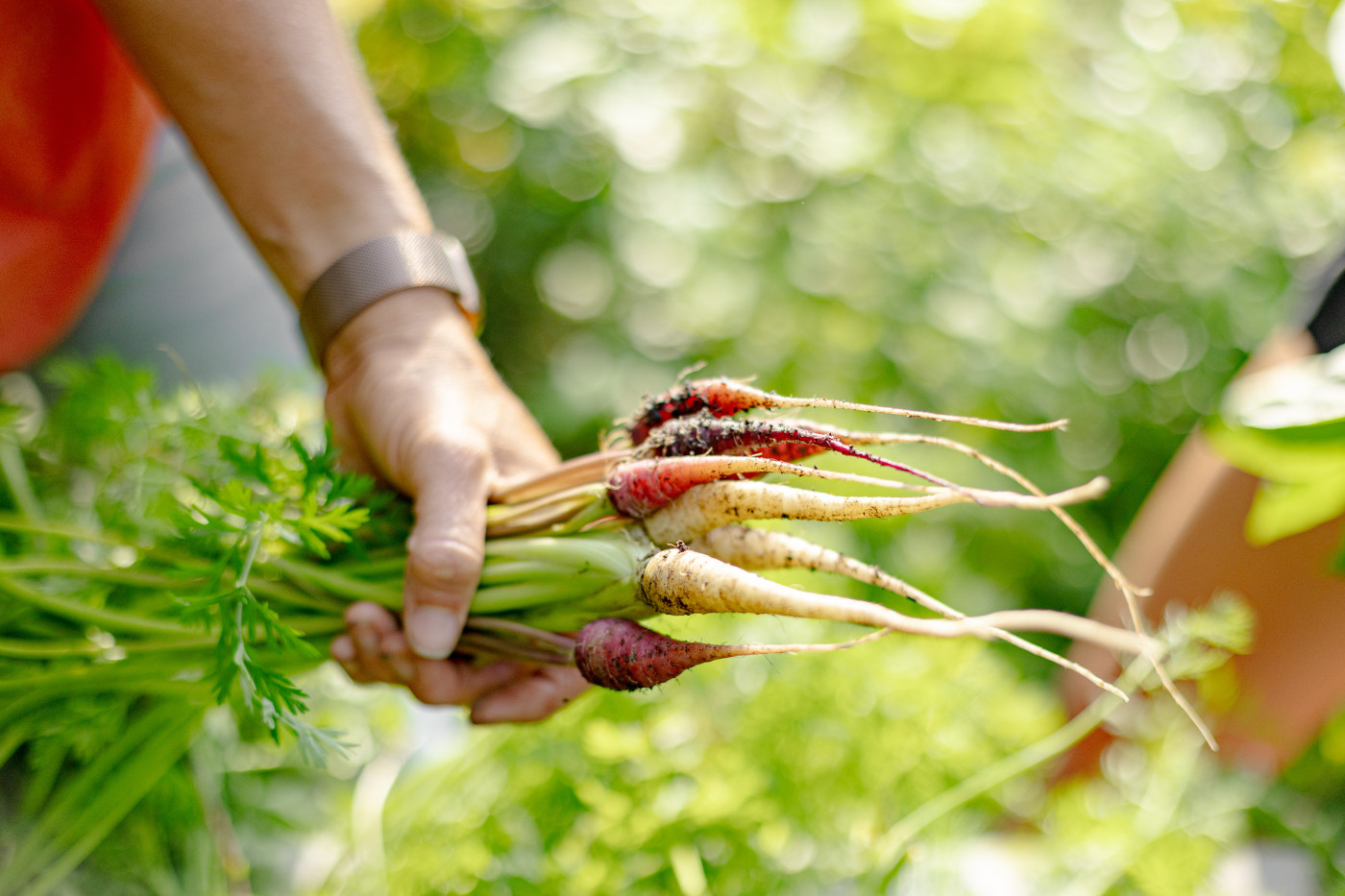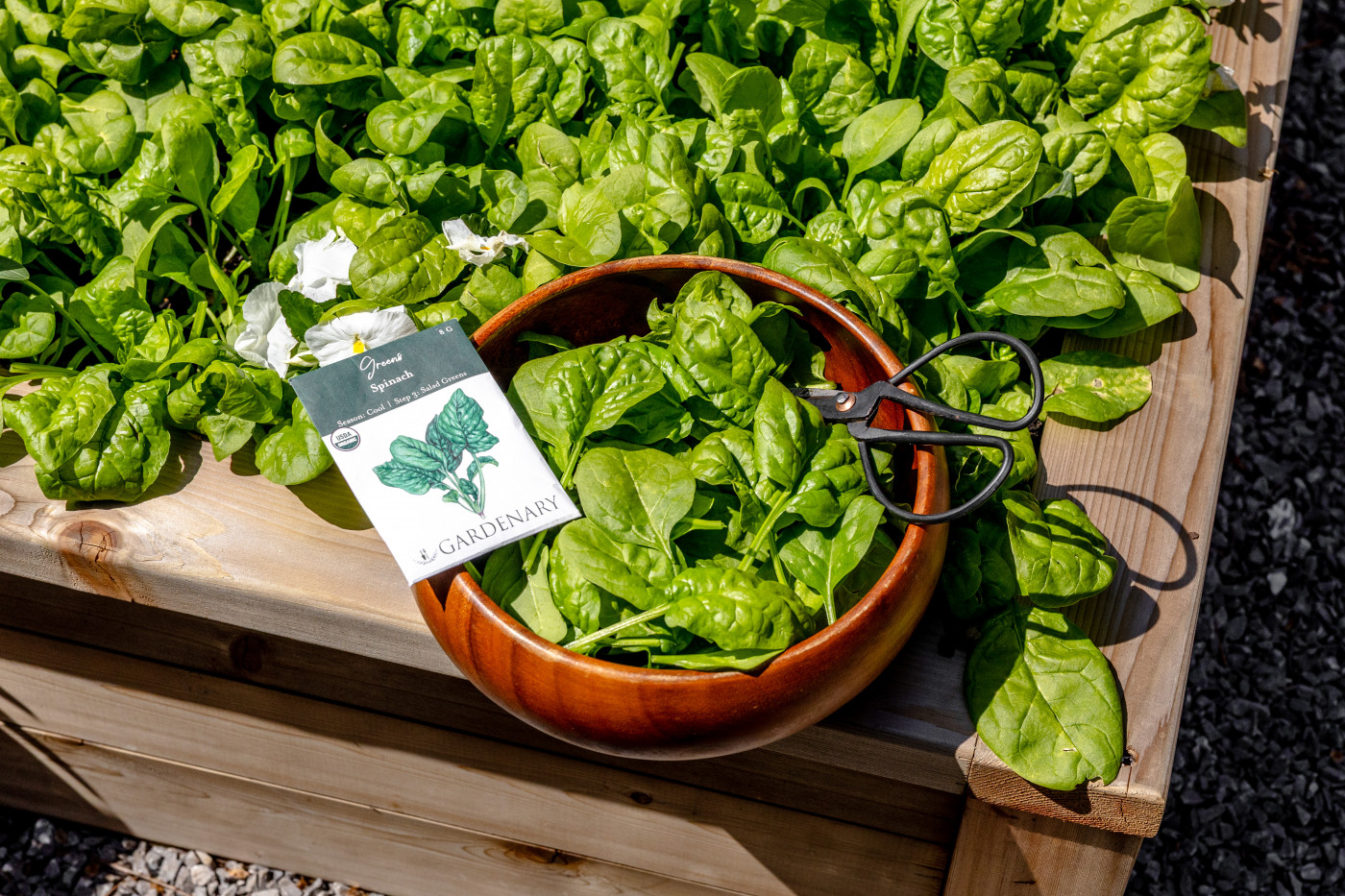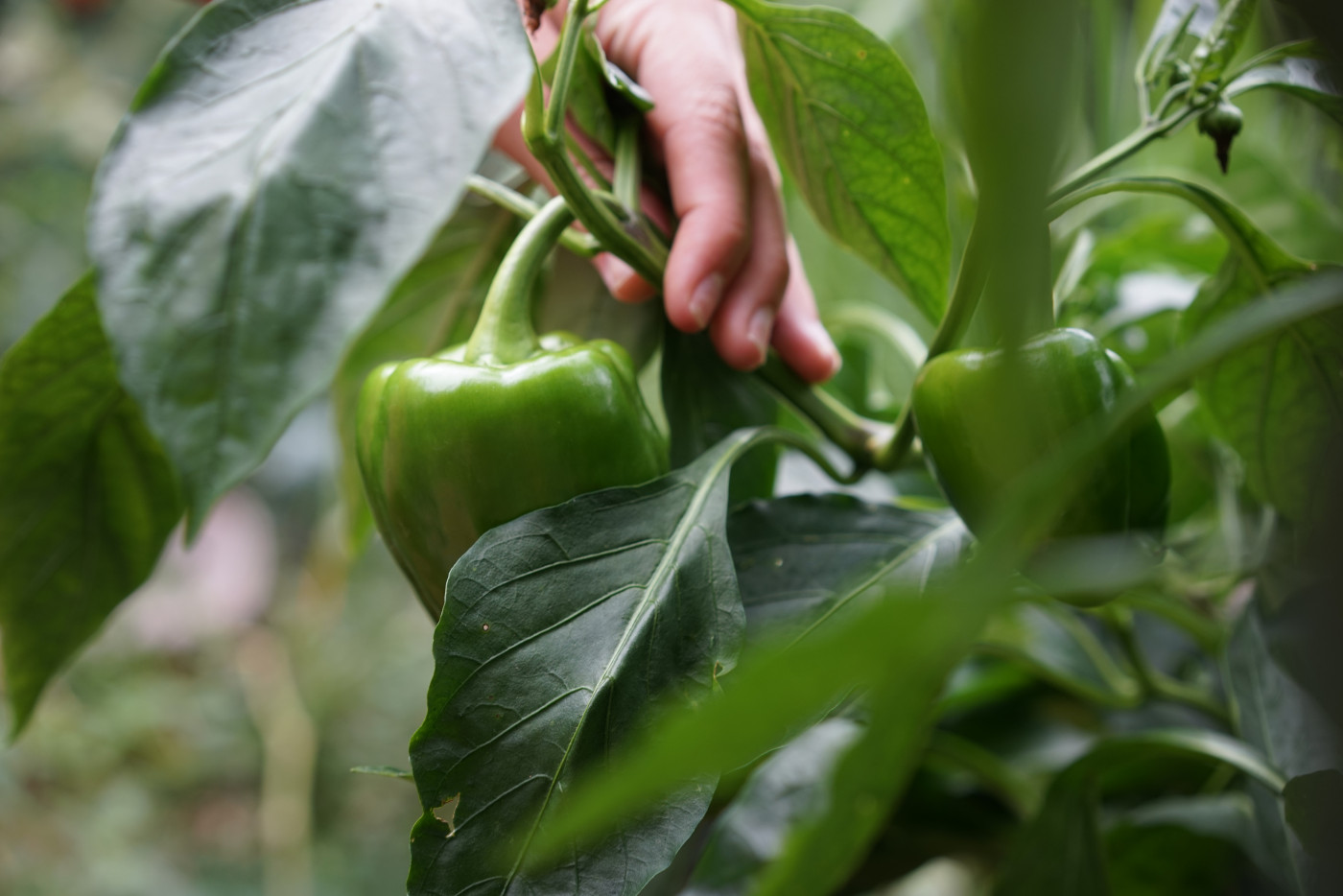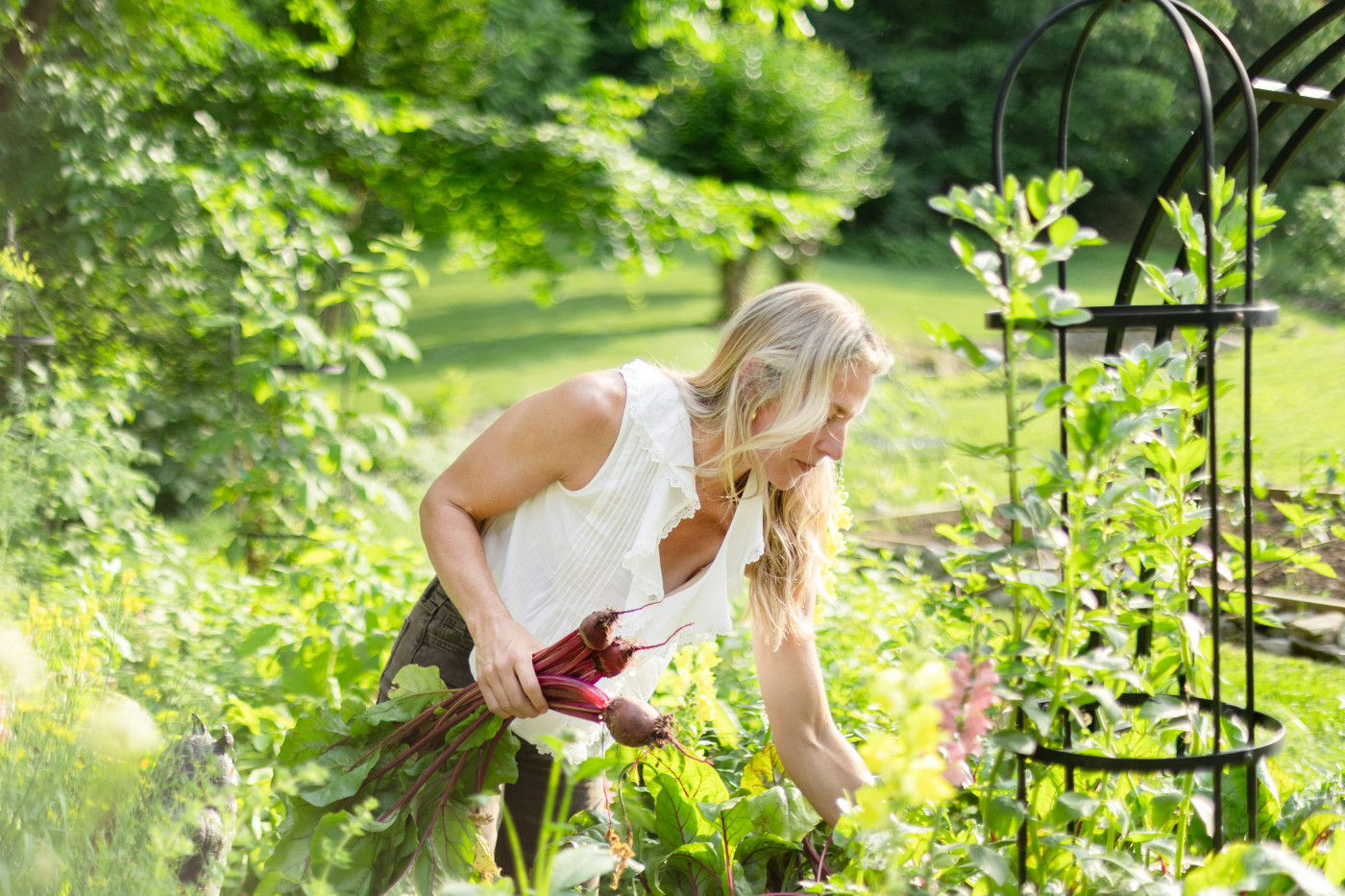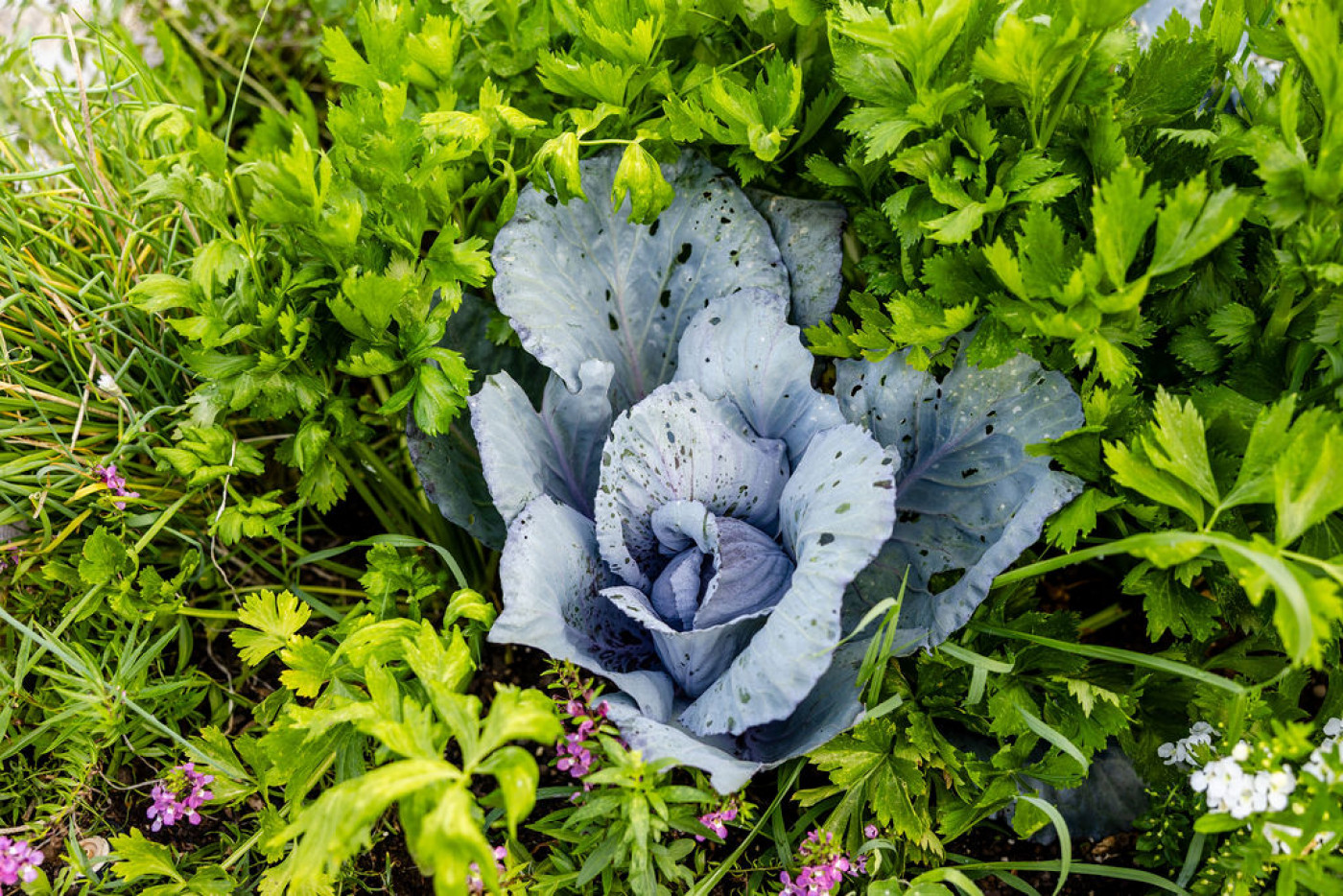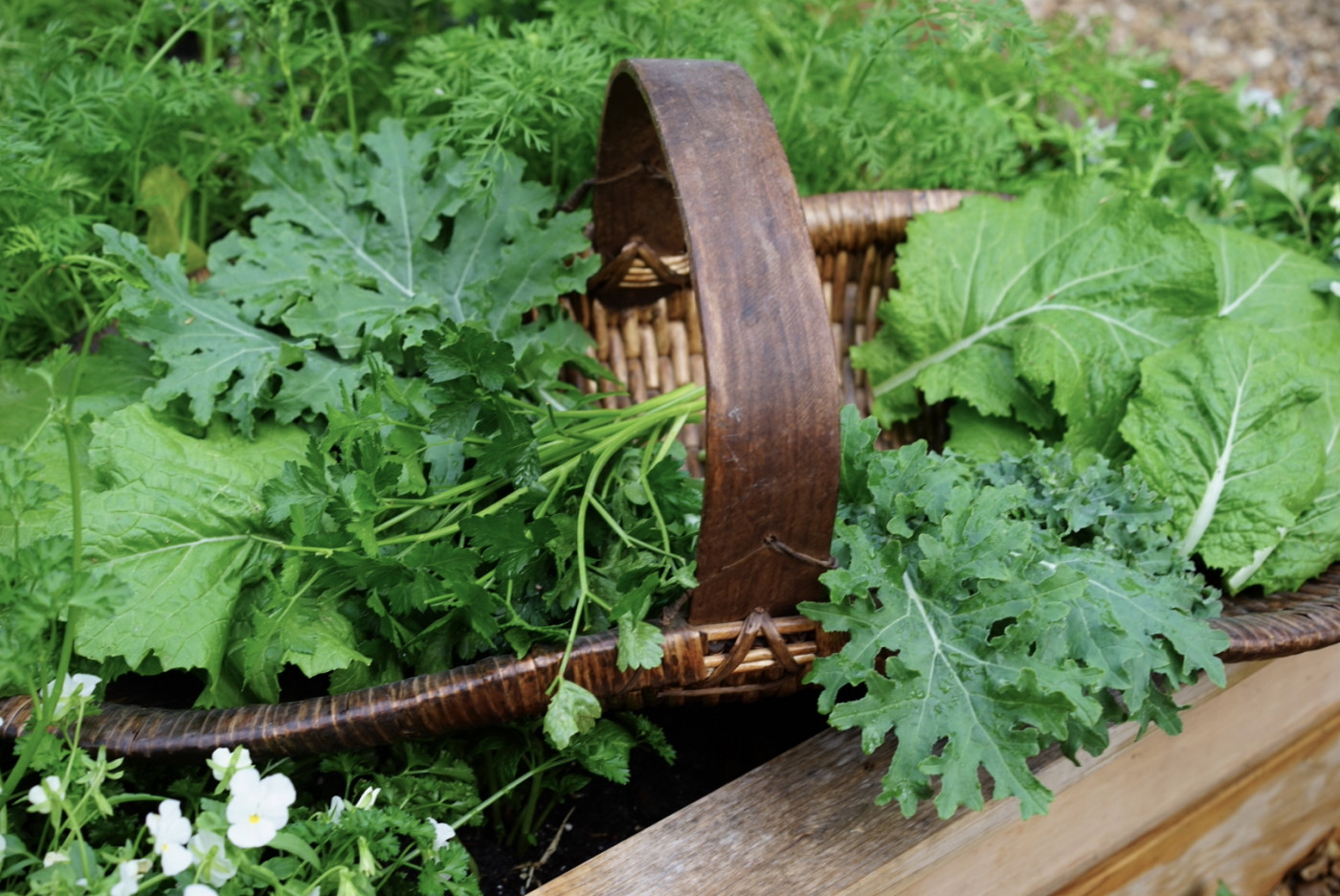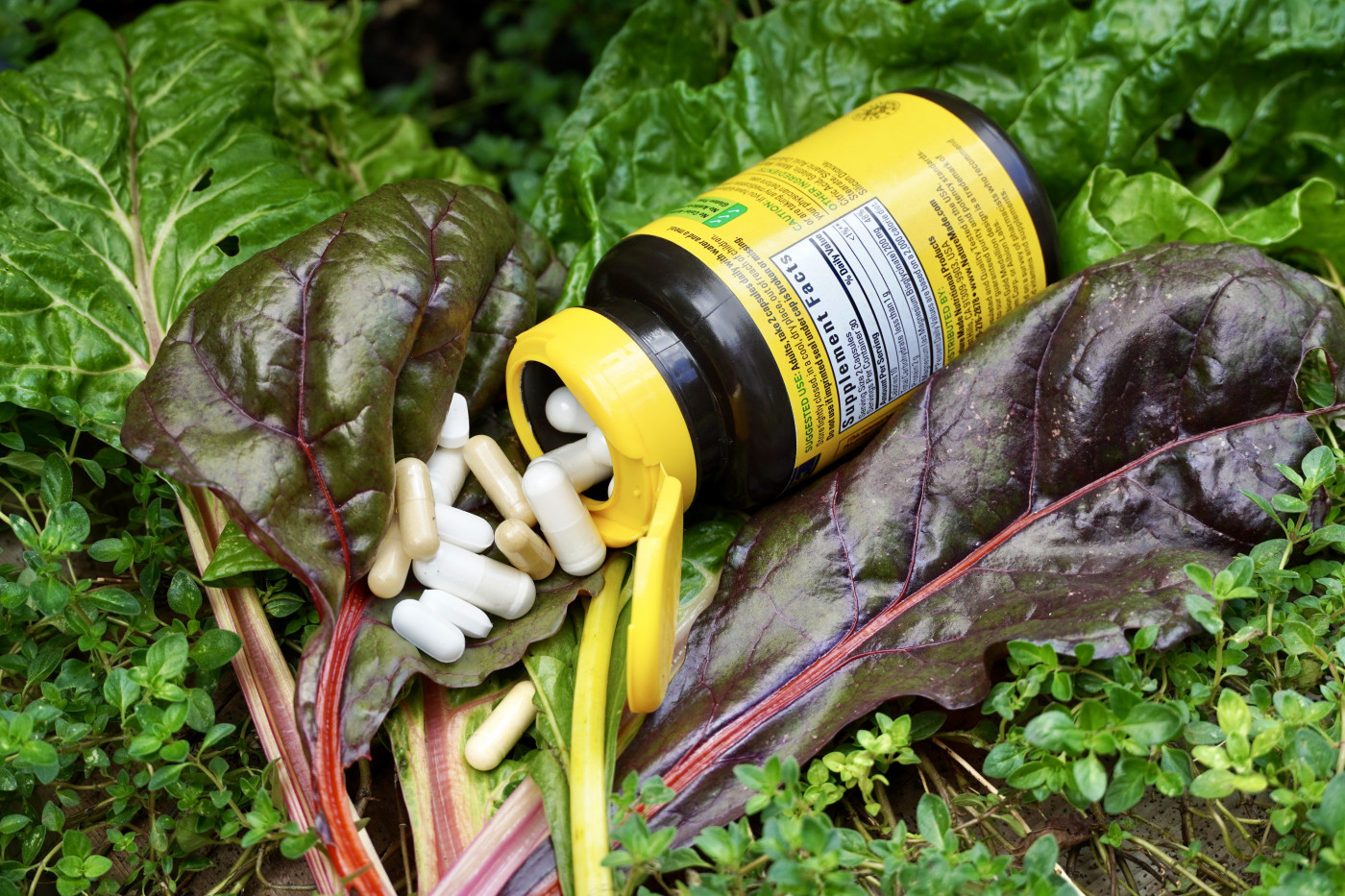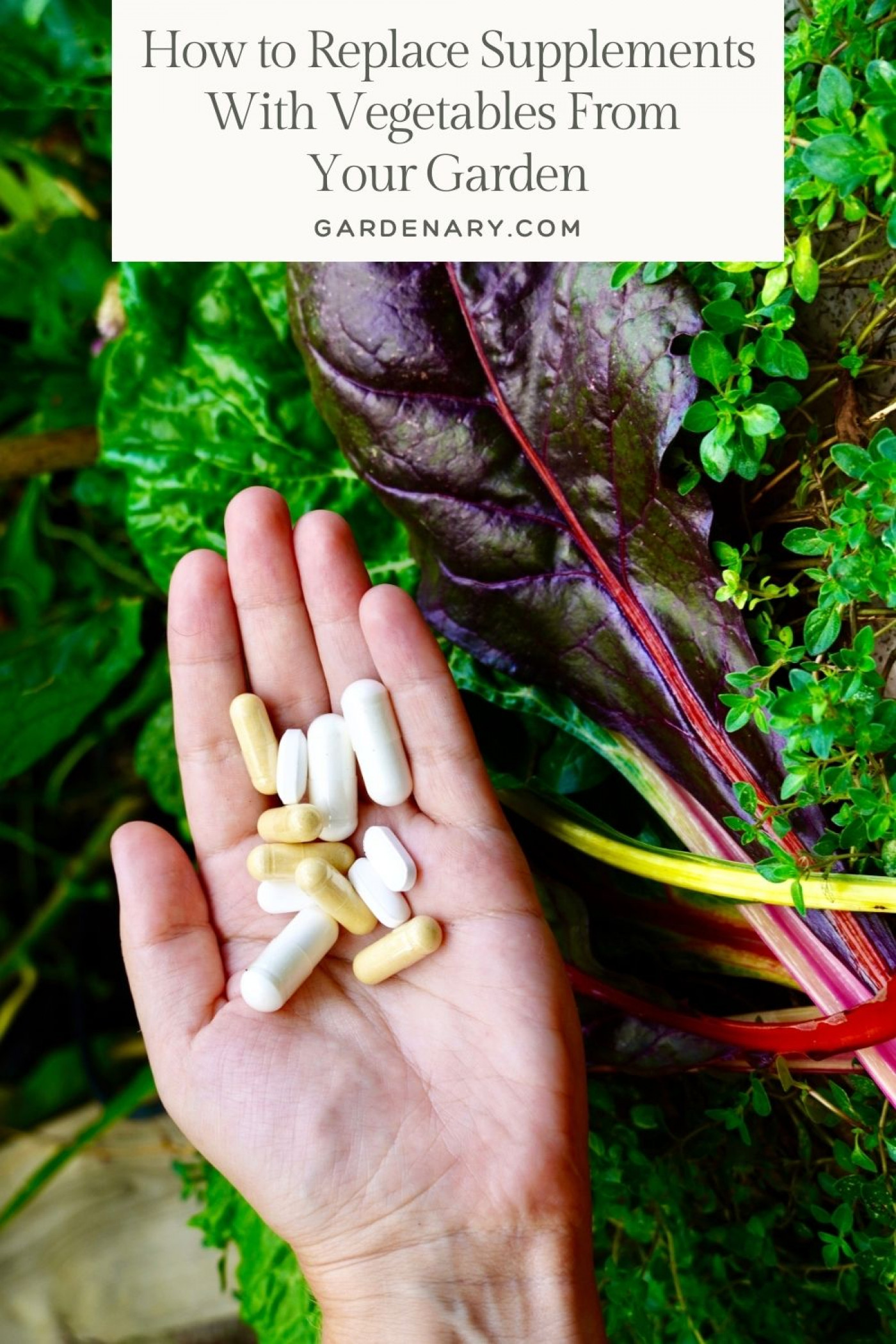Why You Should Grow Your Vitamins Instead of Buying Them
I’m not exaggerating when I say that you can replace a huge portion of vitamins and minerals you’re buying in supplement form just by stepping outside into your garden. Instead of spending hundreds of dollars on bottles of pills, you could harvest exactly what your body needs in the freshest, most natural form possible.
I learned this firsthand when I realized my daily vitamin C supplement could be swapped for a few bites of kale, parsley, or bell pepper, which I was already growing! The more I paid attention, the more I saw that my garden was overflowing with the same nutrients I used to buy from the store.
Food doesn’t just match what’s in a pill; it often delivers those vitamins in a form your body can use more easily, with extra benefits that supplements can’t provide. By growing your nutrients, you also get the joy, exercise, and sunshine that come from tending a garden, making it one of the healthiest habits you can adopt.
At a Glance
- Growing the right vegetables can replace many common vitamin and mineral supplements.
- Fresh garden produce often provides more bioavailable nutrients than store-bought pills.
- A home garden offers a natural, cost-effective way to support overall health year-round.
Vitamin A — For Skin, Immunity, and Eyesight
Vitamin A is one of the most popular supplements people take, but you can grow it right in your backyard. Your body makes vitamin A from beta carotene, which is found in carrots, sweet potatoes, and a variety of leafy greens.
I love pulling up fresh carrots from the garden, knowing they’re packed with nutrients for my skin, immune system, and eyesight. Fun fact, cooked carrots actually provide more usable vitamin A than raw ones, so don’t be afraid to roast or steam them.
By growing your own vitamin A-rich crops, you skip the pill and enjoy delicious, colorful foods at the same time. Plus, these plants are versatile in the kitchen, making it easy to get your daily dose without even thinking about it.
B Vitamins — Energy and Brain Power from the Garden
B vitamins are famous for boosting energy and supporting brain health, but you don’t have to get them from a bottle. Spinach, beets, and peas are all rich in B vitamins and thrive in the cooler parts of the year.
I get a kick out of planting peas early in the spring, knowing they’ll help power me through busy days. Beets add vibrant color to the garden and my plate, while spinach gives me a quick, easy harvest I can enjoy fresh.
By growing your own B vitamin sources, you’ll have a steady supply of nutrient-dense foods right outside your door. It’s a simple, tasty way to keep your body fueled and your mind sharp.
Vitamin C — The Immune Booster in Your Backyard
Vitamin C used to be one of the first supplements I’d grab off the store shelf, but now I just step outside to harvest it. My kale, parsley, and bell peppers give me more vitamin C than an orange, and one red bell pepper alone has over three times what I need in a day.
I’ll never forget the first time I tossed fresh parsley from my garden into a salad and realized I was eating a vitamin boost without even trying. Bell peppers bring that sweet crunch I love, and kale keeps me harvesting well into the cool months.
Now, I get my vitamin C by picking something beautiful from the garden. It’s fresher, tastier, and so much more satisfying.
Vitamin D — The Sunshine Vitamin
Vitamin D is the one vitamin you can’t eat from the garden, but that doesn’t mean your garden can’t help you get it. The real source is sunshine, and spending time tending your plants naturally gives your body the light it needs to make vitamin D.
I used to take a vitamin D supplement because my doctor told me I was low, but now I think of my garden as my prescription. Pulling weeds, watering seedlings, or harvesting lettuce all give me an excuse to soak up the sun.
Of course, I’m careful about sun exposure, wearing a hat, and stepping into the shade when I need to. But those regular, gentle doses of light throughout the gardening season keep my energy up and my mood steady. For me, gardening is the easiest and happiest way to get vitamin D.
Iron — Beyond Red Meat
Iron is essential for carrying oxygen through your blood and keeping your energy levels steady. Many people think they have to rely on red meat for iron, but plenty of plants can give you a healthy boost.
Lentils, pumpkin seeds, and Swiss chard are some of the best garden sources of iron. Swiss chard is especially generous, producing beautiful, colorful leaves from early spring to late fall.
Pairing iron-rich plants with those high in vitamin C, like parsley, kale, or bell peppers, helps your body absorb the mineral more effectively. That means a salad with Swiss chard and red pepper isn’t just delicious, it’s working hard for your health.
Warm & Cool Season Guides for Year-Round Success
Stay on top of your garden all year with both the Warm and Cool Season Garden Guides! This two-book set gives you at least six full months of expert guidance, ensuring you always know what to plant, how to care for your garden, and when to harvest.

Magnesium — Nature’s Relaxation Mineral
Magnesium is one of those minerals almost everyone seems to be talking about these days. It helps relax your body, calm your mind, and improve your sleep, making it a quiet hero for overall wellness.
Some of the best garden sources of magnesium are Swiss chard, spinach, avocados, pumpkin seeds, and black beans. I love that these plants bring beauty to the garden while also giving my body what it needs.
I first started paying attention to magnesium after a stressful season left me tossing and turning at night. That year, I made a point to grow more Swiss chard and spinach, and I swear my sleep started to improve after I added them to my regular meals.
One of my favorite combinations is a black bean and avocado salad with fresh greens from the garden. Not only does it taste amazing, but I know it’s packed with magnesium and other minerals my body craves. By growing magnesium-rich crops, I’m feeding both my body and my mind.
Learn more about growing broccoli
Vitamin K — Building Strong Bones Naturally
Vitamin K plays a crucial role in building and maintaining strong bones by helping your body use calcium effectively. It’s also essential for proper blood clotting, which supports wound healing and overall cardiovascular health.
Kale, broccoli, Brussels sprouts, and spinach are some of the richest garden sources of vitamin K. These cool-season crops thrive in mild temperatures, making them easy to grow in both spring and fall.
Regularly eating vitamin K-rich vegetables can help reduce the risk of osteoporosis and support long-term bone density. They also provide a range of other nutrients, including fiber, antioxidants, and additional vitamins that work together to promote overall wellness.
Vitamin B12 — Plant-Friendly Options
Vitamin B12 is essential for producing red blood cells, supporting nerve health, and keeping your energy levels steady. It also plays a key role in brain function, helping with memory, focus, and mood regulation. Without enough B12, you can experience fatigue, weakness, and even long-term neurological issues.
Unlike most vitamins, B12 is naturally found in animal products and not in plants, which makes it harder to get from a garden alone. This is why many people who eat mostly plant-based diets look for alternative sources. Luckily, there are creative, garden-friendly ways to include B12 in your meals.
One option is nutritional yeast, which is fortified with B12 and can be sprinkled over fresh salads, roasted vegetables, or even popcorn for a cheesy, nutty flavor. While it’s not grown in the soil, it pairs beautifully with produce you harvest from your garden.
Another way to get B12 in a plant-friendly diet is through fermentation. Vegetables like cabbage, bok choy, or other leafy greens can be turned into kimchi or sauerkraut, which can develop B12-producing bacteria during the fermentation process.
Even if you do eat animal products, combining these B12-friendly foods with fresh vegetables from the garden can create nutrient-dense meals that support energy, focus, and overall wellness. Fermented vegetables also add beneficial probiotics, which support gut health and digestion.
Zinc
Zinc is an essential trace mineral that supports immune function, wound healing, and overall growth in the human body. In the garden, one of the best sources of zinc you can grow is garlic, which adds incredible flavor and natural pest resistance to your vegetable beds.
Garlic is easy to plant in the fall and will be ready for harvest by early to midsummer, giving you a powerful nutrient boost right from your own soil. Simply add a few fresh cloves to your cooking, and you’ll be nourishing your body while savoring one of the most versatile flavors in the kitchen.
Calcium
Calcium is best known for building and maintaining strong bones and teeth, but its benefits go far beyond that. It also supports muscle function, nerve signaling, and even helps maintain a steady heartbeat. While many people think of dairy as the main source, the garden can be an excellent place to find calcium-rich foods.
Collard greens, mustard greens, kale, broccoli, and spinach are all packed with calcium. Even certain “weeds” like purslane can be surprisingly high in this essential mineral. By planting a mix of these crops, you can have fresh, calcium-rich options available from early spring through late fall.
I still remember the year I planted collards for the first time. I wasn’t sure if I’d like them, but after one harvest, I was hooked. The best part is that these crops are versatile in the kitchen. You can sauté collards with garlic, toss spinach into smoothies, steam broccoli for a side dish, or add kale to soups and salads—all while boosting your daily calcium intake naturally.
By growing calcium-rich plants, you’re giving your body what it needs for strong bones, steady muscles, and healthy nerves. You can enjoy your nutrients in fresh, flavorful ways straight from the garden.
Get the complete Salad Garden School
Learn the step by step to plant, set up, and grow your own organic salad garden and enjoy fresh greens for at least 6 months each year, no matter where you live.

Omega-3
Omega-3 fatty acids are essential for heart health, brain function, and reducing inflammation in the body. While many people turn to fish oil supplements, certain plants can provide a healthy, garden-fresh source of these important fats.
One of the best garden sources of omega-3s is purslane, a common edible weed that often grows on its own without much care. It’s tender, slightly lemony, and can be added to salads, smoothies, or sautés for both flavor and nutrition.
By including omega-3-rich plants like purslane in your garden, you can support cardiovascular health and cognitive function naturally. It’s a simple, delicious way to get this important nutrient without relying on a supplement bottle.
From Pills to Plants
From Pills to Plants
Your garden can be one of the richest sources of vitamins and minerals your body needs, often in higher quality and more available forms than you’d get from a supplement. From vitamin C in bell peppers and kale, to vitamin A in carrots and sweet potatoes, the nutrients are right there in the soil, ready to be harvested. Every bite comes with additional benefits like fiber, antioxidants, and phytonutrients that pills simply can’t match.
Iron-rich crops like Swiss chard and lentils can help keep your energy steady, while magnesium-packed greens like spinach can promote better sleep and reduced stress. Vitamin K from broccoli and kale supports strong bones, and even omega-3s can be found in plants like purslane. By mixing and matching what you grow, you can cover a wide range of your body’s nutritional needs.
Some nutrients, like vitamin D and B12, require a little extra creativity. Your garden can’t produce vitamin D directly, but tending it gets you out in the sunshine, and your body needs to make it naturally. For B12, fermented vegetables like kimchi can help supply this vital nutrient while adding probiotics for gut health.
When you grow your nutrients instead of buying them, you gain more than just fresh produce. You save money on supplements, reduce packaging waste, and enjoy the mental and physical benefits of gardening with movement, stress relief, and time outdoors.
Starting your own vitamin-rich garden is one of the simplest, most rewarding steps you can take toward better health. If you have a backyard plot or a few containers on a balcony, you can begin replacing pills with plants and nourish your body the way nature intended.
Click on the Pinterest image below to save this article!

